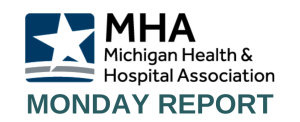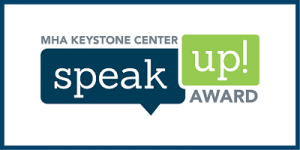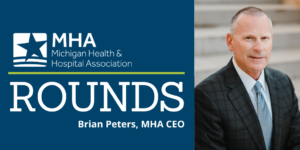
“An ounce of practice is worth more than tons of preaching.” ― Mahatma Gandhi
 The last four years have generated tremendous awareness about vaccines, but also a large public health challenge as disinformation has exploded and anti-vaccine sentiment has emerged from the fringes to become widely embraced. This likely isn’t news to any of you, but the issue is once again top of mind because this time of year is respiratory illness season, whether it be the flu, RSV and now COVID. Thankfully, we have vaccines available to blunt the severe impacts of these illnesses, but it falls on both healthcare providers and public health professionals to appropriately communicate the benefits of vaccines to our patients and the public.
The last four years have generated tremendous awareness about vaccines, but also a large public health challenge as disinformation has exploded and anti-vaccine sentiment has emerged from the fringes to become widely embraced. This likely isn’t news to any of you, but the issue is once again top of mind because this time of year is respiratory illness season, whether it be the flu, RSV and now COVID. Thankfully, we have vaccines available to blunt the severe impacts of these illnesses, but it falls on both healthcare providers and public health professionals to appropriately communicate the benefits of vaccines to our patients and the public.
The recent reports from the Centers for Disease Control and Prevention (CDC) are concerning, as they are warning providers about the low vaccination rates for each of these diseases. Flu vaccination rates are down across all age groups compared to last year, while COVID vaccine uptake is the same as last year at just 17% of adults; similarly, only 17% of adults 60 years of age and older have received an RSV vaccine.
Due to these low vaccine rates, the CDC reported Dec. 14 that over the past four weeks, hospitalizations across the country increased 200% for the flu, 51% for COVID and 60% for RSV. In Michigan, we need look no further than last year to see how a surge of RSV illness can dramatically challenge the statewide capacity of our children’s hospitals. We know more can be done and it isn’t too late for people to receive their vaccines that are proven to reduce the risk of severe illness and hospitalization.
The MHA has a long history of support for vaccinations, as we continue to work with the Alliance for Immunizations in Michigan, the Parent Information Network, I Vaccinate and others to measure, educate and promote appropriate vaccinations for all Michigan residents. I Vaccinate specifically has been a terrific statewide public awareness campaign to connect with parents on the value of making sure you keep your children up to date on their vaccinations as they grow up. The bottom line is that the safety and efficacy of numerous vaccines has been supported and documented by not only the CDC, but the World Health Organization, and many other academic and clinical organizations.
We also know healthcare personnel play a key role in limiting the spread of illness during these months. For some time, we have collaborated with the Michigan Department of Health and Human Services to encourage vaccination policies for healthcare personnel against preventable diseases, such as the flu and pertussis.
Healthcare personnel are also important messengers when it comes to vaccines. We highly encourage all patients with questions about vaccines to contact their healthcare provider. These are important decisions and healthcare providers are uniquely qualified to provide accurate information about the benefits and any potential risks associated with any treatment. They also do so with care and respect for their patients. The MHA provides additional vaccine resources to healthcare leaders on our MHA vaccinations webpage.
Since the pandemic, the MHA has engaged in numerous ways on healthcare supply chain issues. On that note, another key challenge has been the available supply of Beyfortus, the monoclonal antibody for infants to prevent severe RSV illness. The MHA has been actively collaborating with stakeholders to navigate these supply concerns, as well as to provide reimbursement clarity. The good news is we have plenty of patients wishing to have their infants immunized, but due to manufacturing and distribution issues, there simply is not enough supply for all these young children. Thankfully the Biden administration recently announced 230,000 additional doses of RSV immunizations for infants will be available this month.
Realistically, we know we won’t change declining vaccination trends overnight, in a society that is as polarized as ever. Yet, I’m hopeful that over time we will be able to turn the tides, much as healthcare providers have for over a hundred years in using this valuable tool to eradicate harmful illnesses. It all starts with individual conversations from trusted messengers, but at the end of the day, we need to practice what we preach.
As always, I welcome your thoughts.


 The Affordable Care Act is Back on Stage: What to Expect
The Affordable Care Act is Back on Stage: What to Expect




